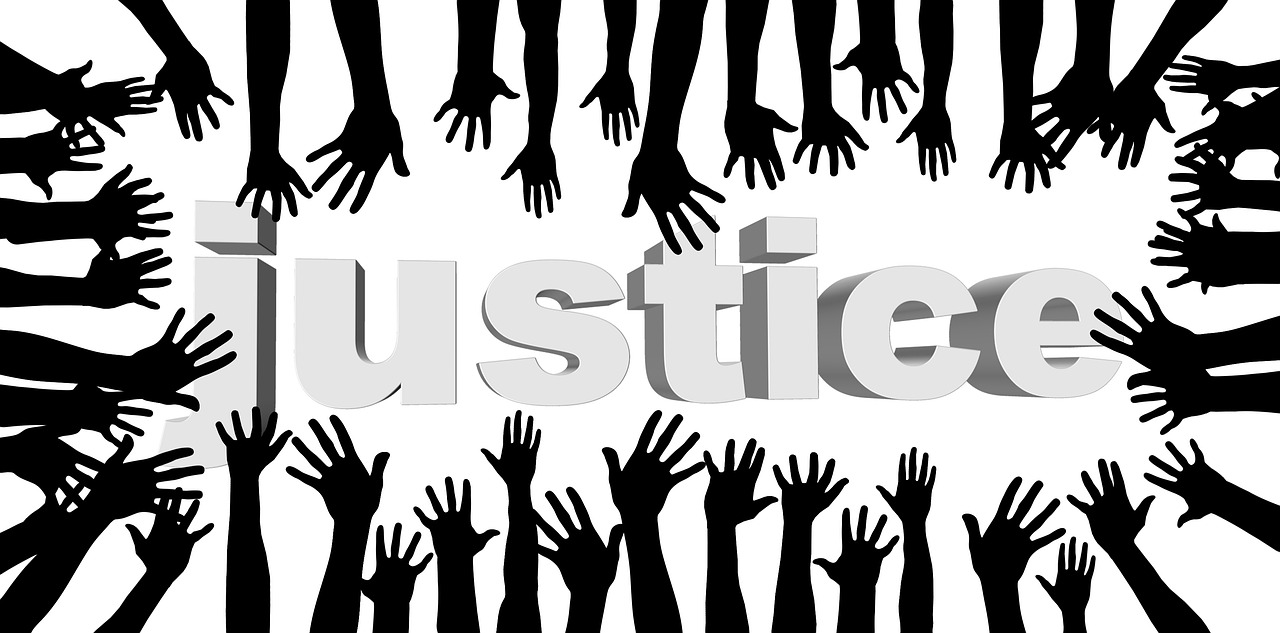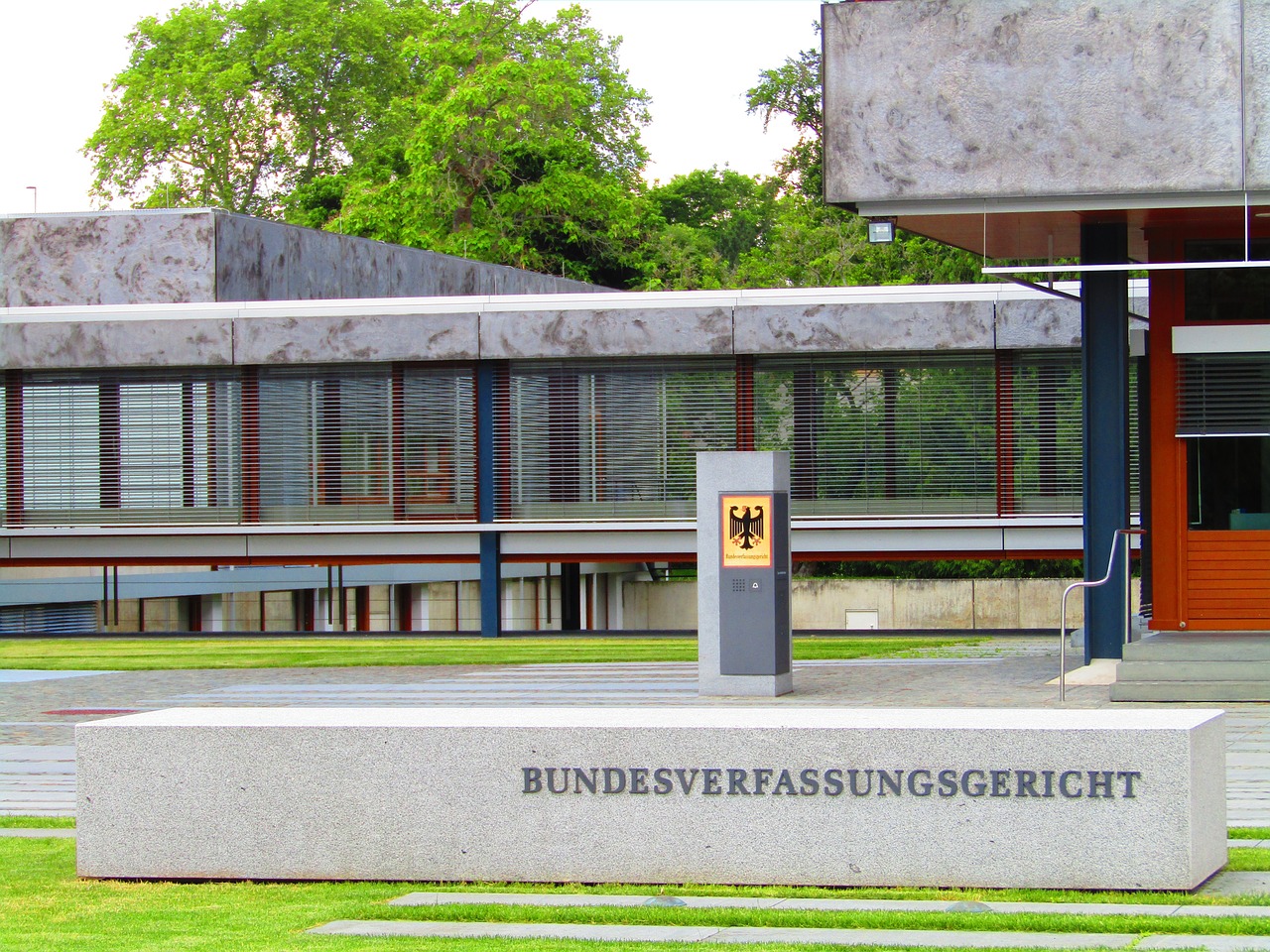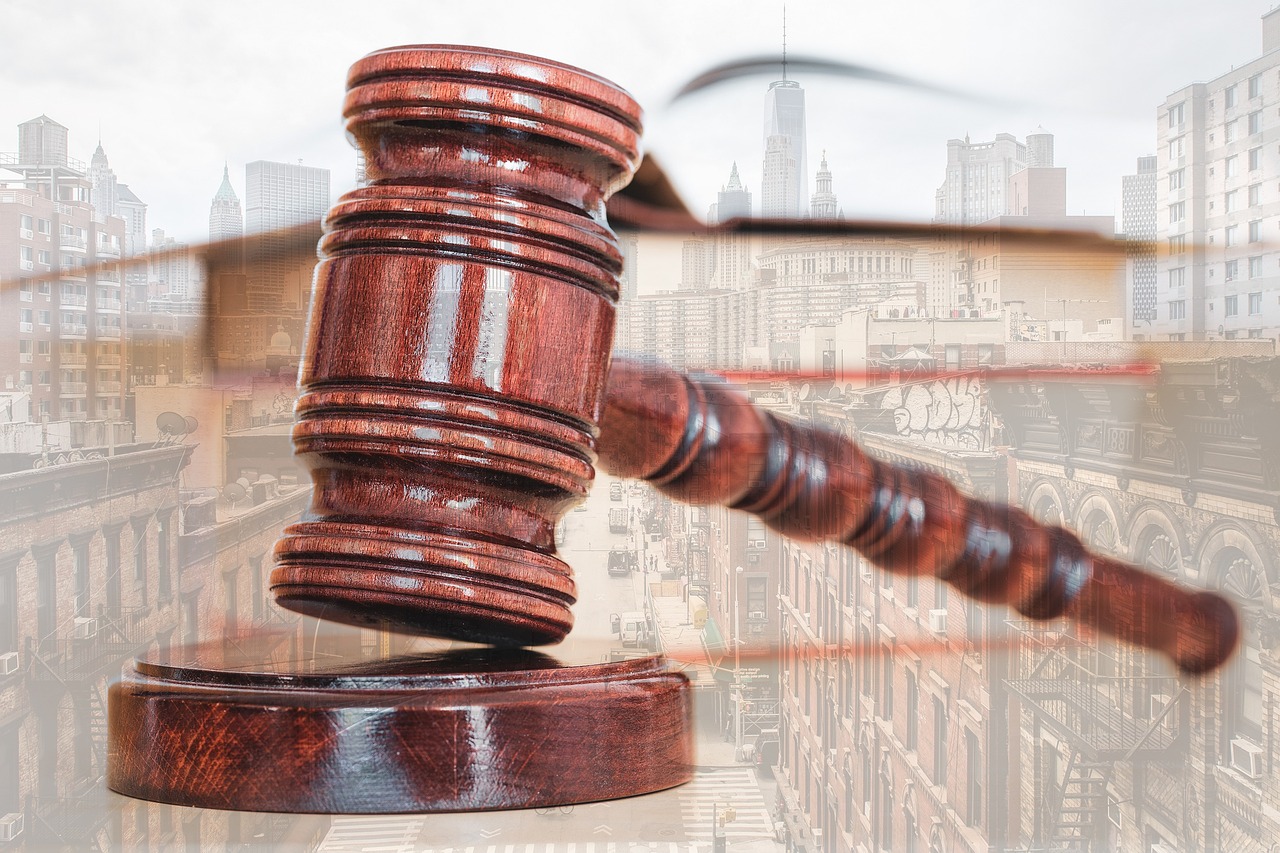Understanding John Rawls’ Theory of Justice
John Rawls, a towering figure in modern political philosophy, introduced a groundbreaking approach to understanding justice that continues to resonate in contemporary discussions. His theory, often encapsulated in the idea of fairness, seeks to address the fundamental question: what does a just society look like? Rawls invites us to reimagine societal structures by placing ourselves in a hypothetical scenario, one that strips away the biases of personal circumstances and social status. This approach not only challenges us to think critically about our own positions but also encourages a more equitable distribution of resources and opportunities among all members of society.
At the heart of Rawls' theory lies the concept of the original position, a thought experiment where individuals, devoid of any knowledge about their own social standing, come together to determine the principles of justice. Imagine a group of people deciding the rules of a game without knowing if they would be players or referees, winners or losers. This scenario compels participants to prioritize fairness and impartiality, ensuring that the principles they establish would be just for everyone, regardless of their eventual social circumstances.
One of the most profound elements of Rawls' theory is the veil of ignorance. This metaphorical veil acts as a shield, preventing decision-makers from accessing information about their own identities, such as race, gender, or economic status. By operating behind this veil, individuals are encouraged to create a framework for justice that is inherently fair and equitable. It’s a bit like designing a society while blindfolded; you can’t favor one group over another because you have no idea where you might end up in the social hierarchy.
Rawls argues that the principles of justice should prioritize equality and fairness. These concepts are not mere ideals but foundational pillars that influence social and political structures. In his view, a just society is one where individuals have equal access to basic liberties, and where inequalities are arranged to benefit the least advantaged members. This principle of justice is not just about balancing scales; it’s about creating a society where everyone has a fair shot at success, regardless of their starting point in life.
In addition to the original position and the veil of ignorance, Rawls articulates two specific principles of justice: the equal basic liberties principle and the difference principle. The first principle guarantees each person the same set of basic rights and freedoms, while the second allows for social and economic inequalities only if they benefit the least advantaged. This dual framework is crucial in understanding how Rawls envisions a just society. It’s not merely about leveling the playing field; it’s about ensuring that even those who start at a disadvantage have opportunities to thrive.
Another significant aspect of Rawls' framework is the idea of social cooperation. He posits that a just society is one where individuals work together for mutual benefit, fostering an environment of shared responsibility and collective well-being. This cooperation is essential for achieving an equitable distribution of resources and opportunities. Think of it as a community potluck, where everyone brings a dish to share. The more people contribute, the richer the experience for everyone involved.
Rawls’ difference principle is a particularly intriguing facet of his theory. It posits that while inequalities in wealth and resources may exist, they are only justified if they ultimately benefit the least advantaged members of society. This principle challenges the status quo and prompts us to reconsider how we measure success and fairness in our economic systems. It’s a call to action for policymakers and citizens alike to ensure that progress does not come at the expense of those who are already struggling.
In summary, John Rawls’ Theory of Justice provides a compelling framework for understanding fairness in society. By emphasizing the original position, the veil of ignorance, and the principles of justice, Rawls challenges us to think beyond our individual circumstances and work towards a more equitable world. His ideas serve as a powerful reminder that justice is not just a theoretical concept but a practical necessity for fostering a harmonious and inclusive society.
- What is the original position in Rawls' theory? The original position is a hypothetical scenario where individuals decide the principles of justice without knowledge of their own social status, ensuring impartiality.
- What does the veil of ignorance entail? The veil of ignorance requires decision-makers to be unaware of their personal circumstances, promoting fairness in the creation of justice principles.
- What are the two principles of justice outlined by Rawls? The two principles are the equal basic liberties principle and the difference principle, which together aim to ensure fairness and benefit the least advantaged.
- How does Rawls' theory address social inequalities? Rawls' difference principle allows for inequalities only if they benefit the least advantaged members of society, challenging the notion that all inequalities are unjust.

The Original Position
The Original Position is a fascinating concept introduced by John Rawls in his groundbreaking work, "A Theory of Justice." Imagine a scenario where you, along with others, are tasked with determining the fundamental principles of justice that will govern society. However, there's a twist! You are stripped of all knowledge about your personal circumstances, such as your social status, wealth, race, or gender. This hypothetical situation is designed to ensure that everyone approaches the task with a sense of impartiality and fairness.
Why is this important? Because it forces individuals to think beyond their own interests. In the Original Position, you are not just considering what benefits you personally; instead, you're thinking about what would be fair for everyone, especially the most vulnerable members of society. This is where the concept of the Veil of Ignorance comes into play, which we'll explore further in the next section. But for now, let's delve deeper into the implications of the Original Position.
Rawls argues that if we were to make decisions from this standpoint, we would naturally gravitate towards principles that promote equality and justice. After all, if you don’t know whether you will end up as the wealthy elite or the impoverished worker, wouldn't you want to create a system that protects everyone? This leads to a more just society, as it encourages the establishment of rules that ensure basic rights and liberties for all individuals.
In practice, the Original Position serves as a thought experiment that challenges our biases and encourages us to think critically about our societal structures. It prompts us to ask questions like:
- What kind of society do we want to live in?
- How can we ensure that everyone has equal opportunities?
- What principles should guide our decisions to make them just and fair?
By engaging with these questions, we can better understand the essence of justice as envisioned by Rawls. The Original Position not only serves as a theoretical framework but also as a practical guide for evaluating our current social policies. It encourages us to reflect on whether our systems are indeed fair and equitable, or if they inadvertently favor certain groups over others.
In conclusion, the Original Position is more than just a philosophical idea; it's a call to action. It challenges us to envision a society where fairness prevails, and where the principles of justice are crafted with the utmost care and consideration for all individuals, regardless of their background. This thought experiment invites us to step into the shoes of others and to advocate for a world where justice is not just an ideal, but a reality.

Veil of Ignorance
The is arguably one of the most fascinating and thought-provoking concepts introduced by John Rawls in his Theory of Justice. Imagine a scenario where you are about to design the rules of society, but here’s the catch: you have no idea who you will be in that society. Will you be rich or poor? Will you be healthy or suffer from a disability? Will you have a privileged background or come from a marginalized community? This thought experiment forces you to strip away your personal biases and consider what a fair society would look like for everyone, regardless of their circumstances.
This concept emphasizes the importance of impartiality in decision-making. By placing individuals behind the veil of ignorance, Rawls encourages us to think about justice from a perspective that is free from self-interest. It’s like trying to create a game without knowing your role in it—wouldn’t you want the rules to be fair for all players, regardless of their strengths or weaknesses? This approach is not just philosophical fluff; it has real-world implications for how we think about laws, policies, and social contracts.
In practical terms, the veil of ignorance leads to the establishment of principles that promote equality and fairness. When individuals are unaware of their positions in society, they are more likely to advocate for policies that protect the most vulnerable. For instance, if you were unsure whether you would be born into a wealthy family or a low-income household, you might support policies that provide better education and healthcare for all, ensuring that everyone has a fair shot at success.
To further illustrate this, consider the following implications of the veil of ignorance:
- Universal Principles: It encourages the creation of principles that apply universally, rather than favoring one group over another.
- Social Safety Nets: It supports the establishment of social safety nets to protect those who are less fortunate.
- Redistributive Policies: It justifies redistributive policies that aim to level the playing field.
In essence, the veil of ignorance serves as a moral compass that guides us towards a more just society. It challenges us to think beyond our immediate interests and consider the broader implications of our choices. By adopting this perspective, we can foster a culture of social cooperation where justice is not merely an abstract idea, but a concrete reality that benefits everyone.

Equality and Fairness
At the heart of John Rawls' Theory of Justice lies the profound concepts of equality and fairness. These ideas are not just philosophical musings; they are essential principles that shape the very fabric of a just society. Imagine a world where everyone has an equal shot at success, where opportunities are not dictated by the luck of the draw, but rather by a fair system that promotes equitable treatment for all. This is the vision Rawls presents, and it challenges us to rethink our societal structures.
Rawls argues that for a society to be just, it must prioritize these two principles. But what does this mean in practical terms? To understand this better, let's break it down:
- Equality: This principle asserts that every individual should have the same basic rights and opportunities. It’s about leveling the playing field, ensuring that no one is disadvantaged due to their background, wealth, or social status.
- Fairness: Fairness goes a step further by emphasizing that the processes and systems in place must be just and impartial. It’s not just about equal opportunity; it’s about ensuring that everyone feels they are treated fairly within those systems.
Consider this analogy: think of society as a race. If some runners start at the finish line while others start at the starting line, the race is inherently unfair. Rawls’ Theory advocates for a setup where everyone begins at the same starting line, with equal access to resources and opportunities. This is where the idea of the veil of ignorance comes into play; decision-makers must design principles of justice as if they don’t know where they will end up in the race of life.
Furthermore, the implications of prioritizing equality and fairness are vast. They challenge existing social norms and push for reforms in various sectors, including education, healthcare, and economic policies. For instance, a fair education system would ensure that all children, regardless of their socio-economic background, have access to quality education. This is not just a moral imperative; it’s a practical necessity for fostering a more just and equitable society.
By embedding these principles into the core of our political and social structures, we can work towards a society that not only acknowledges the disparities that exist but actively seeks to rectify them. The journey towards equality and fairness is ongoing, and it requires collective effort and commitment from all members of society.
- What is the difference between equality and fairness?
Equality refers to the equal distribution of rights and opportunities, while fairness emphasizes just processes and treatment within those systems.
- How does Rawls' theory apply to modern society?
Rawls' theory encourages us to create systems that ensure equal opportunities and fair treatment for all individuals, addressing systemic inequalities in various sectors.
- Can fairness exist without equality?
No, fairness is often contingent upon equality. If some individuals have significantly more resources or opportunities, true fairness cannot be achieved.

Principles of Justice
John Rawls, a prominent figure in political philosophy, proposed two fundamental principles of justice that serve as the cornerstone of his theory. These principles aim to create a fair and equitable society, ensuring that the rights and liberties of individuals are protected while also addressing the inequalities that can arise in a capitalist system. The first principle is known as the equal basic liberties principle, which emphasizes that every individual is entitled to the same fundamental rights and freedoms. This principle argues that liberties such as freedom of speech, assembly, and conscience should be universally granted, and no one should have their rights infringed upon due to their social status or personal circumstances.
The second principle, often referred to as the difference principle, introduces a nuanced understanding of social and economic inequalities. Rawls posits that such inequalities are permissible only if they benefit the least advantaged members of society. This principle challenges the notion that wealth and resources should be distributed purely based on merit or market forces. Instead, it calls for a system where the disparities that naturally arise from individual talents and efforts are justified only if they contribute to improving the situation of those who are worst off. In essence, Rawls encourages us to think about justice not merely in terms of equality but in terms of equity—ensuring that everyone has a fair shot at success and well-being.
To illustrate these principles, consider the following table that summarizes their key aspects:
| Principle | Description |
|---|---|
| Equal Basic Liberties Principle | Ensures that all individuals have the same fundamental rights and freedoms. |
| Difference Principle | Allows inequalities only if they benefit the least advantaged members of society. |
These principles are not just theoretical constructs; they have profound implications for how societies should be structured. By prioritizing equal basic liberties, societies can foster an environment where individuals are free to pursue their interests, express their thoughts, and participate in the democratic process. Meanwhile, the difference principle serves as a moral compass guiding policies related to taxation, welfare, and economic opportunity. It challenges us to create a social safety net that uplifts those at the bottom, ensuring that progress does not come at the expense of the most vulnerable.
In conclusion, Rawls' principles of justice compel us to rethink our understanding of fairness and equality. They push us to recognize that true justice is not merely about leveling the playing field but also about ensuring that everyone has the tools and opportunities necessary to thrive. By adopting these principles, societies can work towards creating a more just and equitable world, where every individual—regardless of their background—has the chance to succeed.
- What are the two principles of justice proposed by John Rawls?
- How does the difference principle address inequalities?
- Why is the equal basic liberties principle important?
Rawls proposed the equal basic liberties principle and the difference principle.
The difference principle allows for social and economic inequalities only if they benefit the least advantaged members of society.
This principle ensures that all individuals have the same fundamental rights and freedoms, promoting fairness in society.

Social Cooperation
In the grand tapestry of society, plays a pivotal role, weaving together the threads of individual actions into a cohesive whole. John Rawls emphasizes that for a just society to flourish, individuals must come together, transcending their personal interests to engage in a collective effort. Think of it like a well-orchestrated symphony; each musician, while skilled in their own right, must harmonize with others to create beautiful music. Without cooperation, the melody of justice becomes discordant, leading to societal fragmentation.
At its core, social cooperation is about mutual benefit. When individuals work together, they can achieve outcomes that are not only more equitable but also more efficient. This idea resonates deeply in Rawls' framework, where he argues that cooperation is essential for ensuring that resources and opportunities are distributed fairly among all members of society. Imagine a community garden where everyone contributes; the fruits of their labor are shared, and in turn, everyone enjoys the bounty. This not only fosters a sense of belonging but also cultivates a culture of reciprocity and support.
Moreover, social cooperation is not just a lofty ideal; it has practical implications for how we structure our institutions and policies. For instance, consider the following aspects of social cooperation:
- Resource Distribution: Cooperative efforts can lead to a more equitable distribution of resources, ensuring that even the least advantaged have access to what they need to thrive.
- Collective Decision-Making: Engaging in cooperative dialogues allows for diverse perspectives to be considered, leading to more informed and fair decisions.
- Building Trust: When individuals cooperate, they build trust within their communities, fostering an environment where people feel safe and valued.
Rawls posits that social cooperation is a fundamental aspect of justice, as it enables individuals to work towards common goals while respecting one another's rights and dignity. This perspective challenges us to rethink how we view our responsibilities to one another. Are we merely isolated individuals pursuing our own interests, or are we part of a larger community that thrives on collaboration? The answer, according to Rawls, lies in recognizing the importance of our interconnectedness.
In conclusion, social cooperation is not merely an abstract concept; it is a vital ingredient for achieving justice in society. By coming together and working towards shared goals, we can create a more equitable environment for everyone. As we engage in social cooperation, we not only uplift ourselves but also pave the way for future generations to inherit a society grounded in fairness and mutual respect.
- What is the importance of social cooperation in Rawls' theory?
Social cooperation is essential as it fosters fairness and equality, enabling individuals to work together for common goals, ultimately leading to a more just society. - How does social cooperation affect resource distribution?
Through cooperation, resources can be shared more equitably, ensuring that even the least advantaged members of society have access to necessary resources. - Can social cooperation exist without individual interests?
While individual interests play a role, social cooperation emphasizes that collective efforts can lead to outcomes that benefit everyone, thereby aligning individual goals with the common good.

Difference Principle
The is one of the cornerstones of John Rawls’ Theory of Justice, and it presents a fascinating perspective on how we can think about social and economic inequalities. At its core, this principle suggests that inequalities in society are only justified if they benefit the least advantaged members of that society. Imagine a ladder where the top rungs are occupied by the wealthy and powerful, while the bottom rungs are barely holding on. The Difference Principle argues that any steps taken to elevate those at the top must also serve to lift those at the bottom, ensuring that progress is not made at the expense of the most vulnerable.
To understand this principle better, consider the implications it has for policies and social structures. For instance, when a government decides to implement tax cuts for the wealthy, one must ask: does this truly benefit the least advantaged? If the answer is no, then such a policy would violate the Difference Principle. It’s a call for a more equitable distribution of resources, where the well-being of the least advantaged is always taken into account. This principle challenges us to rethink our priorities and question whether our societal structures are truly just.
Furthermore, the Difference Principle can be illustrated through a practical example. Let’s say a community decides to invest in education. If this investment leads to better educational opportunities for all, including those from disadvantaged backgrounds, it aligns with the Difference Principle. However, if the investment only enhances the educational experiences of the wealthy, then it fails to meet the criteria set by Rawls. The goal is to create a society where everyone has the opportunity to succeed, and where the benefits of social cooperation are shared in a way that uplifts the least advantaged.
In essence, the Difference Principle serves as a moral compass for evaluating social policies and practices. It pushes us to ask the hard questions about fairness and justice in our societies. Are we creating systems that allow everyone to thrive? Or are we perpetuating a cycle where the rich get richer while the poor remain marginalized? By focusing on the well-being of the least advantaged, Rawls provides a framework that not only seeks to rectify inequalities but also promotes a deeper sense of community and social responsibility.
In conclusion, the Difference Principle is not just an abstract philosophical concept; it’s a practical guideline for how we can structure our societies to be more just and equitable. It challenges us to think critically about our values and the impact of our decisions on the most vulnerable among us.
- What is the Difference Principle? The Difference Principle states that social and economic inequalities are justified only if they benefit the least advantaged members of society.
- How does the Difference Principle affect policy-making? It encourages policymakers to consider the impact of their decisions on the least advantaged, ensuring that policies promote equity and social justice.
- Can the Difference Principle be applied in real life? Yes, it can guide decisions in various sectors, including education, healthcare, and taxation, to ensure that benefits are distributed fairly.
- Why is the Difference Principle important? It emphasizes the moral responsibility to uplift those who are less fortunate, promoting a more just and equitable society.

Critiques of Rawls’ Theory
Despite the profound impact of John Rawls’ Theory of Justice on political philosophy, it has not escaped criticism. Various scholars and thinkers have pointed out potential weaknesses and limitations in his framework. One of the most significant areas of critique revolves around the practicality of applying Rawls' principles in real-world scenarios. Critics argue that while the theory is appealing in its idealism, it may not adequately address the complexities and nuances of actual social dynamics.
Moreover, some argue that Rawls’ emphasis on fairness and equality could inadvertently lead to a form of enforced uniformity, which may stifle individual freedoms. This raises an important question: can a society truly be just if it prioritizes equality over personal liberties? Critics suggest that the balance between these two ideals is delicate and requires careful navigation. In essence, they believe that Rawls' framework might overlook the importance of individual rights and freedoms that are essential to a vibrant society.
Another notable critique comes from the libertarian perspective. Libertarians contend that Rawls’ notion of redistributive justice undermines the principle of individual ownership and freedom. They argue that the difference principle, which allows for inequalities as long as they benefit the least advantaged, can lead to coercive measures against those who have earned their wealth through hard work and innovation. This perspective raises a fundamental question: should the needs of the collective outweigh the rights of the individual? In this light, the libertarian critique emphasizes the potential dangers of prioritizing societal welfare at the expense of personal liberties.
Furthermore, feminist scholars have pointed out that Rawls’ theory largely overlooks gender inequalities. While Rawls advocates for principles of justice that aim to benefit the least advantaged, critics argue that his framework does not sufficiently account for the unique challenges faced by women and marginalized genders. They suggest that a more inclusive approach to justice must incorporate feminist insights, emphasizing the need for a framework that addresses not only economic disparities but also social and cultural inequalities. This critique invites us to consider: how can a theory of justice be truly just if it neglects the experiences and voices of half the population?
In summary, while Rawls’ Theory of Justice has significantly shaped discussions around fairness and equality, it is essential to engage with these critiques to deepen our understanding of justice in contemporary society. The ongoing dialogue surrounding these critiques encourages a more nuanced exploration of justice that incorporates diverse perspectives and experiences.
- What is the main idea of Rawls' Theory of Justice?
Rawls' Theory of Justice emphasizes fairness and equality as foundational principles for creating a just society, proposing that societal rules should be determined from an "original position" behind a "veil of ignorance." - How does the Difference Principle work?
The Difference Principle allows for inequalities in social and economic situations only if they benefit the least advantaged members of society, promoting a more equitable distribution of resources. - What are some critiques of Rawls' Theory?
Critiques include concerns about the practicality of his principles, libertarian arguments against redistributive policies, and feminist perspectives highlighting the theory's limitations in addressing gender inequalities.

Libertarian Critique
When we dive into the world of political philosophy, the of John Rawls’ Theory of Justice stands out like a neon sign in a dimly lit room. Libertarians argue that Rawls’ framework, particularly his endorsement of redistributive policies, fundamentally undermines individual freedom. They believe that by advocating for a system that prioritizes social justice and equality, Rawls inadvertently paves the way for governmental overreach. Imagine a world where your hard-earned resources are taken away to fund programs that may not align with your values or priorities; that’s the core of their concern.
The crux of the libertarian argument is that justice should be primarily about protecting individual rights rather than enforcing equality. They assert that each person has the right to keep the fruits of their labor, and any form of redistribution is a violation of that right. In their eyes, Rawls’ principles, especially the difference principle, create a slippery slope where the government can justify taking from one to give to another under the guise of fairness. This leads to a society where individuals are less motivated to work hard, innovate, or take risks because they feel their efforts may be appropriated by the state.
Moreover, libertarians argue that Rawls’ theory does not adequately account for the importance of voluntary exchange and personal responsibility. They believe that a truly just society should allow individuals to make choices about how to allocate their resources without coercive interference. To them, the idea of a social contract that mandates redistributing wealth contradicts the very essence of freedom. They would argue that a just society is one that respects individual autonomy and allows people to pursue their own paths, even if that leads to unequal outcomes.
In addition, some libertarians posit that Rawls' emphasis on social cooperation can lead to an over-reliance on state intervention. They fear that the more we accept the idea that the government should play a role in ensuring equality, the more we risk diminishing personal freedoms. The libertarian perspective is that the best way to achieve a just society is through voluntary cooperation, where individuals come together to support one another without the need for coercive measures.
To summarize, the libertarian critique of Rawls’ Theory of Justice highlights a significant tension between the ideals of freedom and equality. While Rawls aims to create a just society through principles that promote fairness, libertarians caution against the potential loss of individual liberties that could result from such an approach. They advocate for a model of justice that prioritizes personal freedoms and voluntary interactions over state-mandated equality.
- What is the main argument of the libertarian critique of Rawls' theory?
Libertarians argue that Rawls' emphasis on redistributive justice undermines individual freedom and property rights. - How do libertarians view social cooperation in Rawls' framework?
They believe that social cooperation should be voluntary and not enforced by the government, as it can lead to coercive measures that infringe on personal liberties. - What do libertarians propose as an alternative to Rawls' theory?
They advocate for a justice model that prioritizes individual rights and freedoms, allowing for unequal outcomes as a natural result of personal choices.

Feminist Perspectives
Feminist critiques of John Rawls' Theory of Justice provide a vital lens through which we can examine the intricacies and limitations of his framework. While Rawls emphasizes fairness and equality, many feminists argue that his theory often overlooks the unique challenges and systemic inequalities faced by women and marginalized genders. This oversight raises important questions about the applicability of Rawls' principles in real-world scenarios, where gender dynamics play a significant role in shaping social justice.
One of the central critiques from feminist theorists is that Rawls' concept of the 'original position' lacks a nuanced understanding of how gender influences individuals' social roles and experiences. In the hypothetical scenario where individuals decide on principles of justice, the assumption that everyone starts from a level playing field disregards the historical and ongoing impacts of patriarchy. For instance, women often bear the brunt of caregiving responsibilities, which can limit their economic opportunities and social mobility. This reality suggests that a more comprehensive approach to justice must consider these gendered experiences to create truly equitable outcomes.
Moreover, the veil of ignorance—a tool designed to promote impartial decision-making—may not adequately account for the complexities of gender identity and intersectionality. Feminist theorists argue that when individuals are stripped of their identities, they may still be unable to envision the needs and rights of those who experience multiple layers of oppression. In other words, a decision-maker who is unaware of their gender may still fail to grasp the unique challenges faced by women or non-binary individuals. This limitation calls for a rethinking of how justice is conceptualized, ensuring that it is inclusive and reflective of diverse experiences.
Despite these critiques, some feminists have sought to engage with Rawls' ideas constructively. They argue that his principles can be adapted to incorporate feminist insights, leading to a more robust understanding of justice. For example, the principles of justice could be expanded to explicitly address issues such as reproductive rights, domestic violence, and economic inequality. By integrating these concerns, Rawls' framework can better serve as a foundation for advocating for gender equality.
In summary, feminist perspectives on Rawls' Theory of Justice highlight the necessity of incorporating gender analysis into discussions of justice and equality. By recognizing the limitations of the original position and the veil of ignorance, we can work towards a more inclusive and equitable framework that addresses the unique challenges faced by women and marginalized genders. This evolution in thought not only enriches political philosophy but also paves the way for a more just society.
- What is the significance of Rawls' Theory of Justice?
Rawls' Theory of Justice is significant because it provides a framework for understanding fairness and equality in social and political structures, emphasizing the importance of impartial decision-making. - How do feminist critiques enhance Rawls' theory?
Feminist critiques enhance Rawls' theory by highlighting the importance of gender dynamics and intersectionality, advocating for a more inclusive understanding of justice that addresses the unique challenges faced by women and marginalized genders. - What is the 'veil of ignorance'?
The 'veil of ignorance' is a thought experiment used in Rawls' theory that asks decision-makers to make choices about justice without knowing their own social status, ensuring impartiality. - Can Rawls' principles be adapted to address gender inequalities?
Yes, many scholars argue that Rawls' principles can be adapted to include feminist insights, leading to a more comprehensive framework for understanding justice that addresses gender-related issues.
Frequently Asked Questions
- What is John Rawls' Theory of Justice?
John Rawls' Theory of Justice is a framework for understanding justice based on fairness and equality. It emphasizes the importance of impartiality in decision-making, particularly through concepts like the original position and the veil of ignorance, which help ensure that justice principles are determined without bias.
- What does the 'original position' mean?
The original position is a hypothetical scenario where individuals come together to agree on the principles of justice. In this setting, they are stripped of any personal biases, allowing them to make decisions that are fair and just for everyone, regardless of their social status or circumstances.
- How does the 'veil of ignorance' work?
The veil of ignorance is a thought experiment that requires decision-makers to be unaware of their own social and economic status. This ensures that the principles they choose will be fair and just for all, as they cannot tailor these principles to benefit themselves or their particular group.
- What are the two principles of justice outlined by Rawls?
Rawls articulates two key principles of justice: the first is the principle of equal basic liberties, which guarantees fundamental rights for all individuals. The second is the difference principle, which allows for social and economic inequalities only if they benefit the least advantaged members of society.
- What is the difference principle?
The difference principle is a crucial aspect of Rawls' theory that permits inequalities in wealth and resources, but strictly on the condition that they improve the situation of the least advantaged. This principle aims to ensure that any social or economic disparities contribute to the overall fairness of society.
- Why is social cooperation important in Rawls' framework?
Social cooperation is vital in Rawls' Theory of Justice because it fosters a sense of community and shared responsibility. When individuals work together, they can achieve a more equitable distribution of resources and opportunities, which aligns with Rawls' vision of a just society.
- What are some common critiques of Rawls' theory?
Rawls' theory has faced critiques from various perspectives, including libertarians who argue that it undermines individual freedom through its support for redistributive policies. Additionally, feminist critiques highlight its limitations in addressing gender inequalities, suggesting that Rawls' framework needs to be expanded to incorporate these vital insights.
- How do libertarians view Rawls' Theory of Justice?
Libertarians contend that Rawls' theory compromises individual liberty by advocating for redistributive justice. They argue that any form of wealth redistribution infringes on personal freedoms and property rights, which they see as fundamental to a just society.
- What feminist critiques exist regarding Rawls' framework?
Feminist critiques of Rawls emphasize that his theory often overlooks gender inequalities and the complexities of social structures that affect women. They argue that integrating feminist perspectives can enhance Rawls' framework, making it more inclusive and representative of diverse experiences in society.



















